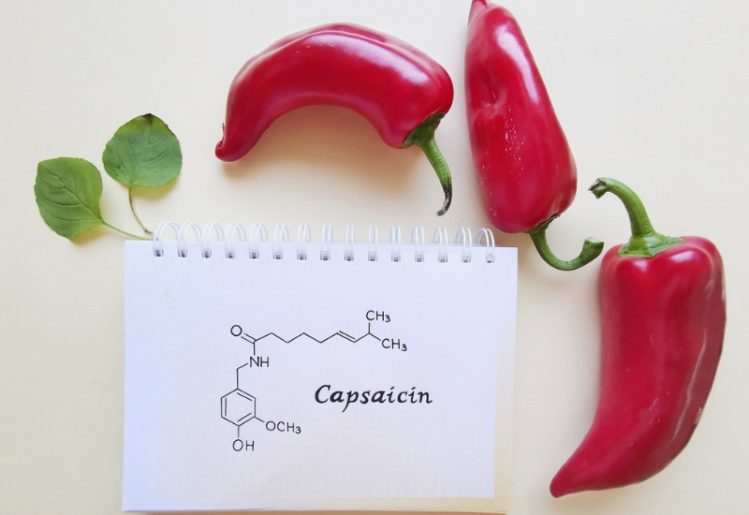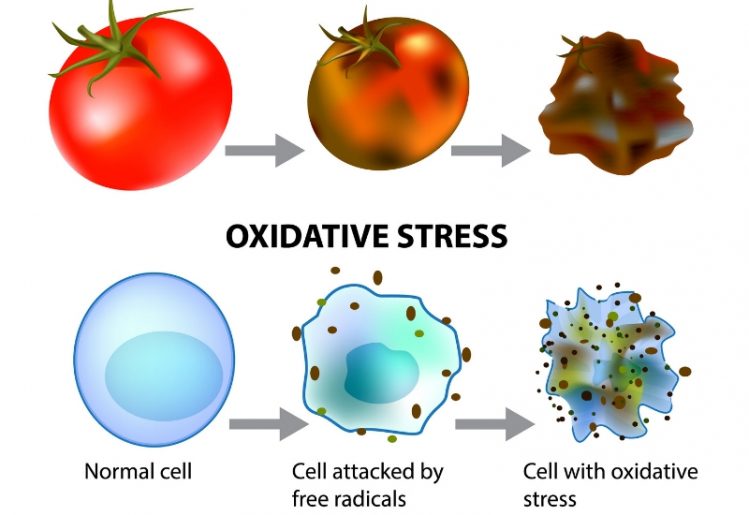New research has linked the gut microbiome and aging, suggesting that maintaining a healthier gut can help you feel younger for longer. A study conducted at Singapore’s Nanyang Technological University focused on the effects of transferring the more diverse gut microbiota of older mice into the guts of younger mice. Once the transfer was complete, the younger mice were examined and the researchers found that the transplanted microbes helped to stimulate the functioning of neurons in the brains of the mice. Amazingly, the mice also exhibited signs that the aging process was slowed through the transfer of microbes.
Research Links Healthy Gut Microbiome and Aging
 Previous studies have shown that the gut microbiome changes as we age. The recent study involved transferring the gut microbiota from 24-week old mice to mice that were only six weeks old. Within eight weeks, the research team noted that there was more advanced neurogenesis and a boost in intestinal growth in the younger mice. These changes were accompanied by an increased growth of butyrate, which is a short-chain fatty acid.
Previous studies have shown that the gut microbiome changes as we age. The recent study involved transferring the gut microbiota from 24-week old mice to mice that were only six weeks old. Within eight weeks, the research team noted that there was more advanced neurogenesis and a boost in intestinal growth in the younger mice. These changes were accompanied by an increased growth of butyrate, which is a short-chain fatty acid.
Produced by bacteria in the gut microbiome, butyrate helps the body fight off a number of healthy threats. It’s especially effective in protecting against IBD (inflammatory bowel disease), diabetes, obesity and colorectal cancer. As specific gut microbes are enriched, those types of bacteria ferment the dietary fibers that are ingested by an individual. This process results in a higher production of butyrate in the colon. Once activated, butyrate helps the body produce more of a hormone called FGF21, which is associated with longevity.
In addition to stimulating FGF21, butyrate also boosts the production of the proteins AMPK and SIRT-1. This is important in that these proteins regulate the metabolism. SIRT-1 in particular helps the immune system fight off disease by reducing mTOR signaling. Lower levels of mTOR signaling can be beneficial because it lowers the risks of cancer and inflammatory diseases.
The research team also found that the transplanted microbiota resulted in growth of the large and small intestines. When given butyrate directly, test mice exhibited similar intestinal growth as well as improved neurogenesis.
The results of this research indicate that the answer to treating degenerative diseases, as well as slowing aging in general, may involve altering the gut microbiome. This may help lead to natural treatments for certain age-related conditions, encouraging additional research into this area of study. In the meantime, we already know that maintaining a healthy gut benefits us in a number of other ways.
Why is a Healthy Gut Microbiome Important?
Even before scientists found a connection between the gut microbiome and aging, researchers had discovered that the bacteria and other microbes in the gut are essential to human health. The gut microbiome is host to trillions upon trillions of microbes with each one influencing the health of the individual. Additionally, the gut microbiome is like a fingerprint in that no two are exactly alike. Up to two-thirds of your gut’s microbiota is unique to you, influencing health-related issues, such as how efficiently your digestive system functions and how your body reacts to certain foods.
Since the gut microbiome is responsible for extracting vitamins from food and helps process them for use by the body, this community of microbes helps support the body’s immune system. Each microbe in the gut microbiome serves a unique function, such as affecting the risks of obesity or type 2 diabetes. For this reason, those with more diverse microbiomes are generally healthier and can face a lower risk of certain diseases.
We also know that the gut microbiome changes as we grow older and expose ourselves to more environmental factors. In addition to the foods we eat, environment, stress and lifestyle habits all affect the diversity of the gut microbiome. Just a few of the conditions affected by the health of the gut microbiome include:
- obesity
- cancer
- emotional health
- autism
How Can You Develop a Healthier Gut Microbiome?
While you start forming the basics of your gut microbiome from birth, there are things you can do to promote a more diverse gut even in adulthood. From altering your eating patterns to engaging in healthier activities, these changes can help you introduce a broader range of helpful bacteria into your gut.
Add More Diversity to Your Diet
Especially in the U.S., few people eat a truly broad range of foods, relying primarily on processed foods. Instead, try adding more color to your diet by choosing a wider variety of fruits and vegetables. Each type of plant-based food contains different types of bacteria, so eating a wider range of foods will help diversify your gut microbiome.
Eat More Fermented Foods
 Products, such as yogurt, sauerkraut and kimchi, help convert sugars into organic acids. This process helps reduce the number of bacteria in the body that promote inflammation. Both adults and children can even help alleviate lactose intolerance by adding more plain yogurt to their diets.
Products, such as yogurt, sauerkraut and kimchi, help convert sugars into organic acids. This process helps reduce the number of bacteria in the body that promote inflammation. Both adults and children can even help alleviate lactose intolerance by adding more plain yogurt to their diets.
Eat Whole Grains
Whole grain products aren’t as easily digested, allowing them to pass through to the large intestine. Once there, the gut breaks down the grains into helpful types of bacteria. The microbes derived from whole grains, such as Bifidobacteria, Bacteroidetes and lactobacilli, help produce a feeling of hunger, limiting the temptation to overeat. These types of bacteria also reduce inflammation and promote better heart health.
Add a Probiotic Supplement
Finally, taking a daily probiotic/prebiotic supplement can also help improve gut health. Probiotics help by boosting the overall health of the gut microbiome and improving the body’s metabolism. Probiotics also help certain types of bacteria function better, which may be why people suffering from some medical conditions are helped by taking this type of supplement.
 Each person’s bodily functions are controlled by a biological clock called the circadian rhythm, which mandates how the brain regulates certain processes. In part, this means that certain nutrients are more important to the body at specific times of the day, and that
Each person’s bodily functions are controlled by a biological clock called the circadian rhythm, which mandates how the brain regulates certain processes. In part, this means that certain nutrients are more important to the body at specific times of the day, and that  Specifically, vitamins B1 and B2 are essential to the functioning of cells in the brain because they support oxygen-rich blood circulation to the brain. They also help improve overall cell functioning, which is important for protecting memory and concentration.
Specifically, vitamins B1 and B2 are essential to the functioning of cells in the brain because they support oxygen-rich blood circulation to the brain. They also help improve overall cell functioning, which is important for protecting memory and concentration. A recent study sought to uncover how capsaicin relieves pain, particularly since this compound has become a common ingredient in many natural pain relievers. Researchers at Rutgers New Jersey Medical School found that capsaicin causes the nerves in the body to send out signals that block pain receptors. Since this process also works to calm the nerves, study author Tibor Rohacs believes capsaicin can also be used as an effective analgesic. It was found that these calming and pain-relieving effects were highly effective and very long-lasting, suggesting that capsaicin supplements and medications may be especially powerful in terms of treating pain and other conditions.
A recent study sought to uncover how capsaicin relieves pain, particularly since this compound has become a common ingredient in many natural pain relievers. Researchers at Rutgers New Jersey Medical School found that capsaicin causes the nerves in the body to send out signals that block pain receptors. Since this process also works to calm the nerves, study author Tibor Rohacs believes capsaicin can also be used as an effective analgesic. It was found that these calming and pain-relieving effects were highly effective and very long-lasting, suggesting that capsaicin supplements and medications may be especially powerful in terms of treating pain and other conditions. Finally, a study on how capsaicin affects longevity found that people who regularly consumed chili peppers were likely to live up to 18 years longer. The University of Vermont study evaluated the effects of consuming chili peppers on 16,000 subjects. They found that the food
Finally, a study on how capsaicin affects longevity found that people who regularly consumed chili peppers were likely to live up to 18 years longer. The University of Vermont study evaluated the effects of consuming chili peppers on 16,000 subjects. They found that the food  There are many processes that contribute to physical aging, including genetic mutations, oxidative stress and inflammation. Throughout our lives, the cells in our bodies continuously divide and multiply. Since this is an ongoing process that occurs constantly, it stands to reason that deviations, or genetic mutations, will occur from time to time. A mutated cell can be rendered ineffective through senescence, or the death of the cell. However, if a mutated cell remains active, it can affect the surrounding tissue and speed up aging.
There are many processes that contribute to physical aging, including genetic mutations, oxidative stress and inflammation. Throughout our lives, the cells in our bodies continuously divide and multiply. Since this is an ongoing process that occurs constantly, it stands to reason that deviations, or genetic mutations, will occur from time to time. A mutated cell can be rendered ineffective through senescence, or the death of the cell. However, if a mutated cell remains active, it can affect the surrounding tissue and speed up aging. Similarly,
Similarly,  It is almost impossible to read the latest health news without learning about the benefits of omega-3 fatty acids. These oils, which are found naturally in fish, flaxseed and a variety of other sources, have been found in studies to have
It is almost impossible to read the latest health news without learning about the benefits of omega-3 fatty acids. These oils, which are found naturally in fish, flaxseed and a variety of other sources, have been found in studies to have  An omega-3 fatty acid supplement is not right for everyone; there are certain people who should talk to their doctor about whether this oily pill should have a permanent place in their medicine cabinet. If you do not regularly eat fatty fish or high omega-3 plant oils, you may want to consider taking a supplement. This essential fatty acid is simply too essential to completely do without.
An omega-3 fatty acid supplement is not right for everyone; there are certain people who should talk to their doctor about whether this oily pill should have a permanent place in their medicine cabinet. If you do not regularly eat fatty fish or high omega-3 plant oils, you may want to consider taking a supplement. This essential fatty acid is simply too essential to completely do without. Menopause is most commonly associated with symptoms like hot flashes, mood swings and night sweats, so it may be surprising to learn that menopause also raises the
Menopause is most commonly associated with symptoms like hot flashes, mood swings and night sweats, so it may be surprising to learn that menopause also raises the  Moderate- to high-intensity physical activity can help alleviate a number of symptoms of menopause. Specifically, getting a minimum of 30 minutes of exercise each day can help you sleep better, diminish anxiety and depression and improve bone density. Regular exercise will also help you control your weight, ensuring you’ll build more lean muscle mass.
Moderate- to high-intensity physical activity can help alleviate a number of symptoms of menopause. Specifically, getting a minimum of 30 minutes of exercise each day can help you sleep better, diminish anxiety and depression and improve bone density. Regular exercise will also help you control your weight, ensuring you’ll build more lean muscle mass.